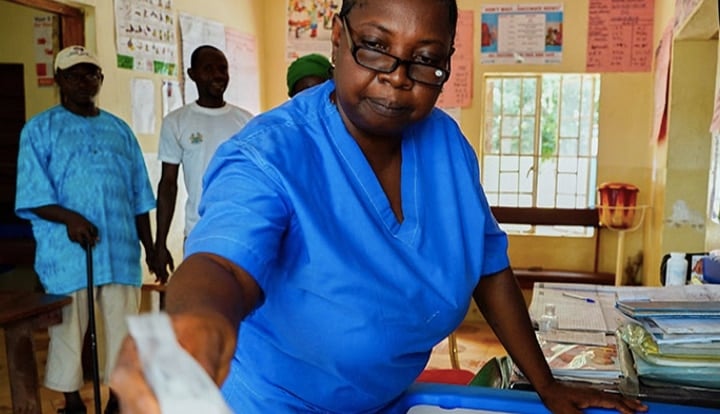The comprehensive vaccine program, at a cost of $2 per person, will help ensure that frontline health workers have appropriate training and equipment, vulnerable populations such as women, girls, and refugees have safe access to medical services as well as the vaccine, and that communities receive critical information and advocacy to promote uptake.
CARE’s approach draws from 75 years of experience in emergency response and humanitarian programming, including addressing outbreaks such as Ebola. One critical learning from this legacy is the recognition that women’s leadership is essential in emergencies such as this and CARE engages them as agents of change. While studies showing that countries with female leaders have suffered fewer deaths from COVID-19 and may recover economically more quickly, CARE’s research has found that women are often shut out of decision making in terms of pandemic response, and frequently have less access to information than men. Responding to the needs of these specific groups benefits from support and perspective from additional partners.
What role can partnerships play?
The cost of delivery and distribution requires funding but moreover it relies on the collaborative efforts of public and private partners who can share their resources which include financial, expertise, networks, supply chains, distribution know-how and more to ensure that the response is efficient, deliberate, and inclusive.
With support from private sector partners, CARE plans to reach people with vaccine support in at least 10 countries (currently including: Bangladesh, India, Uganda, Haiti, South Sudan, Sierra Leone, Nepal, Nigeria, Benin, and DRC). Furthermore, CARE has worked in these countries before the pandemic and will continue to address the medium- and longer- term impacts of the crisis as it affects poverty, livelihoods, education, gender-based violence, and sexual and reproductive health.
CARE’s Partnerships in the COVID emergency response
Since its creation after World War II to distribute boxes of food and supplies donated by American businesses – the original CARE Packages – CARE has worked with the private sector to respond to emergencies. Our partnerships with UK companies before and during COVID-19 illustrate the potential for how businesses can join forces with CARE and Fast and Fair approach:
Emergency response with a gender focus:
CARE and Diageo have collaborated since 2016 to understand and address barriers to gender inclusion throughout the whole Diageo value chain. Together CARE and Diageo have invested in understanding the experiences of women to create recommendations and build action for more gender inclusive business models. Diageo supported CARE’s COVID-19 Emergency Response Fund, a pool of funding which enabled CARE to immediately deploy resources to meet the most critical in-country priorities and conduct rapid gender analysis.
Frontline Health Workers and refugee communities:
CARE has worked with GSK for a decade to strengthen frontline health worker networks and capacity in remote and underserved areas in nine countries, including in Bangladesh, where the collaboration has created sustainable private networks of skilled health entrepreneurs. In Cox’s Bazar refugee communities, where CARE and GSK provided sexual and reproductive health services to women and girls and established door-to-door health services, when COVID-19 reached the camp in March 2020, these trusted providers were able to quickly add COVID-19 responsive messaging to their outreach as well as innovate where needed to provide sustained health services through digital technologies and platforms.
Community education:
CARE is part of a public health communications partnerships with Unilever and FCDO, the Hygiene Behaviour Change Coalition in which CARE is working to de-stigmatize the virus in some of the most challenging and remote settings to encourage preventive measures and behaviour change through the promotion of handwashing and good hygiene practices where women and girls are often amongst the most vulnerable.
In order to quickly and justly address both the pandemic and the underlying issues it has amplified, organizations, private sector, government and others will need to create and innovate through multi-stakeholder partnerships. COVID-19 is an obstacle that can derail progress toward a more just world or provide a new opportunity to bring new leadership, insight, and opportunity toward solving pressing problems. CARE International is well positioned to support the most vulnerable and marginalised, we have the trust and the solutions to ensure no one is left behind and to build a better future.










